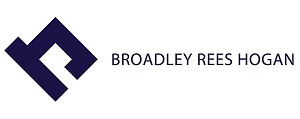Following our last e-Alert on 10 February 2020, on the Queensland Government passing new body corporate and community management regulation modules which became law on 1 March 2021, here is a summary of the changes contained in the Body Corporate and Community Management (Commercial Module) Regulation (CM).
The CM applies to commercial community title schemes where the lots in a scheme are predominantly commercial or if the lots are not predominantly commercial then where the first community management statement identifies that the scheme was intended to include predominantly commercial lots.
The CM also applies in circumstances where the lots in a scheme were previously, but are no longer, predominantly commercial and the community management statement from the time the lots stopped being predominantly commercial and each community management statement since identifies the CM as the regulation module applying to the scheme.
Committee membership
Sections 15 to 16 CM clarify how a voting committee member can be removed. A committee member can now be removed by passing an ordinary resolution or by following the removal procedures set out in the Code of Conduct of Voting Committee Members. |
Committee Meetings
Section 22 CM allows a lot owner to submit a motion for consideration at a committee meeting or be decided on outside a committee meeting. The committee must make a decision as soon as reasonably practicable and within 6 weeks. The committee is not required to decide on a motion if within the 12-month period before the lot owner submitted the motion, submitted a motion about the same issue or have submitted 6 or more motions. The motion cannot conflict with the BCCM Act, prescribed regulation module, by-laws or be on a restricted issue. |
Sections 25 to 27 CM allows electronic committee meetings to be held. The sections also allow lot owner representatives to attend committee meetings. |
Sections 28 and 31 CM states that a voting committee member with a body corporate debt ("debtor member") will not be able to vote at committee meetings or outside of a committee meeting (until the body corporate debt is extinguished). However, the debtor member can be counted towards a quorum. |
Sections 32 and 33 CM grant committee members 21 days to vote on a motion outside of a committee meeting. If a decision is not made within the specified time frame the motion is deemed to not have been agreed upon. |
Committee for Body Corporate
Section 36 CM prevents a committee member from receiving a benefit from a caretaking contractor or service contract, other than a "permitted benefit", unless authorised by the body corporate. |
Body Corporate Meetings
Section 44 CM allows lot owners to submit a motion for the first annual general meeting. |
Section 45 CM allows voting on secret ballots in hard copy and electronically. |
Section 47 CM states if 2 or more motions proposing different ways to deal with the same issue are submitted for a general meeting, the committee must list the original motions together on the agenda as a "group of same-issue motions". A voter may vote on one or more of the grouped motions. |
Section 54 CM requires a developer to provide additional documents, including development approvals, building warranties, documents relating to any claim made against a policy of insurance taken out by the original owner, contracts or agreements for the supply of utility services, fire and evacuation plans and any proxy forms that the original owner is the proxy for an owner of a lot. |
Section 57 CM allows bodies corporate to pass a motion by special resolution to change how a quorum is calculated for a general meeting. A body corporate will be able to decide a minimum percentage of voters for a quorum at a general meeting that is—
Under the expiring module, a quorum is present if 25% of voters cast a vote and (generally) two people are physically present at the meeting. Under the new module, bodies corporate can decide a person is personally present if that person can cast a vote electronically at the meeting. This should significantly reduce the number of adjourned meetings. |
Section 59 CM states a representative or power of attorney may only represent one lot, unless:
The objective of this section is to prevent the activity of "power of attorney farming" which can result in the inappropriate use of powers of attorney. The provisions prevent the concentration of voting power which can impact a scheme's decision making. |
Section 56 CM states that if a motion is ruled out of order, the reason for the ruling must be recorded in the minutes of meeting. |
Property Management
Sections 128 and 129 CM obliges a body corporate, at its second annual general meeting, to consider a defect assessment motion proposing to engage an appropriately qualified person to prepare a defect assessment report for all property that the body corporate must insure for its full replacement value. The objective of these sections is to encourage the early discovery of building defects. |
The Difference
As these lots are predominantly used for commercial and industrial purposes, not for accommodation or as residential lots, many provisions that appear in the highly regulated Standard and Accommodation Modules do not appear in the CM.
Whilst not intended to overhaul the existing module, time will tell whether these new regulations address previous loopholes and whether they are an improvement for commercial bodies corporate and industry stakeholders.
The content of this article is intended to provide a general guide to the subject matter. Specialist advice should be sought about your specific circumstances.


